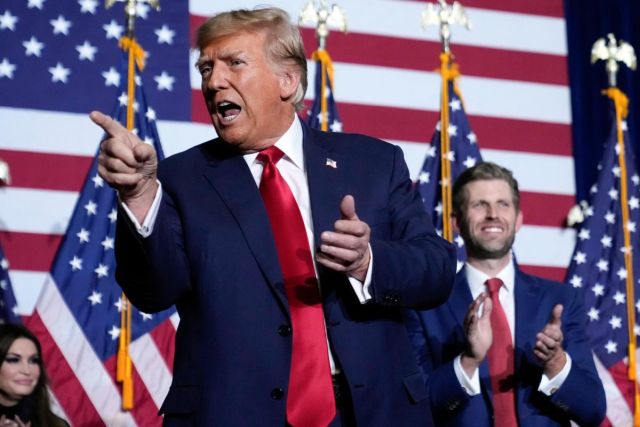


Swing State Polls: Trump Trusted More than Harris on Trade, Tariffs

By Wendell Husebø
Voters trust former President Donald Trump more than Vice President Kamala Harris on international trade and tariffs, according to a set of swing state polls conducted by BSG and GS Strategy Group released Thursday.
-
The finding shows Trump’s economic agenda resonates with all-important swing state voters, who face wage pressure due to rising costs under the Biden-Harris administration. Prices across the board have risen about 20 percent on average under Biden-Harris.
Polling reported on Wednesday found swing state voters in Arizona, Georgia, Michigan, Nevada, North Carolina, Pennsylvania, and Wisconsin trust Trump more than Harris on trade and tariffs by three points (48-45 percent). Seven percent said they trust both equally. The poll sampled “2,941 voters” across seven swing states from September 19-25. The margin of error was not provided.
The majority of Americans support tariffs, previous polling shows, even though political elites and establishment media constantly speak against them.
Trump’s trade and tariff proposals are:
- Universal Baseline Tariffs: A plan to replace the Biden system of punishing domestic producers and rewarding outsourcers with a new system that rewards domestic production while taxing foreign companies.
- Ending Reliance on China: A plan to completely eliminate U.S. dependence on China, the primary beneficiary of Democrats’ globalist agenda.
More on Trump’s proposals is here.
The issue of tariffs is one of the longest-running debates in American history. Tariffs generate revenue for the federal government and encourage domestic production in some industries by acting as a protective barrier against foreign competitors.
Average tariffs increased to as high as 60 percent before declining to 20 percent between 1790 and 1860. From 1861 to 1933, average tariffs increased to 50 percent, according to Douglas A. Irwin’s “Trade Policy in American Economic History.” Since 1934, tariffs declined to an average of about 5 percent due to the rise of an idea dubbed “free trade,” though Irwin caveats that: “In 2018–19 there is an uptick in the average tariff as a result of the Trump administration’s duties on imports from China and on imports of steel.”
Free trade sidelined tariffs in policy debate until 2016, when Trump campaigned on America First policies that protect American producers.
Some economists believe “free trade” is a radical idea born to profit the global elites.
-
-
-
